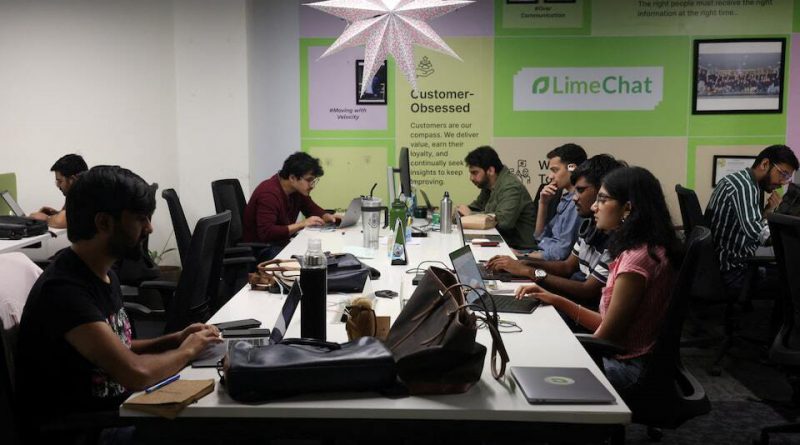India’s AI Revolution: Transforming Call Centers into a Hub of Innovation and Opportunity
Bengaluru — India is embracing a technological transformation that promises to reshape its $283 billion IT sector, creating new opportunities while driving efficiency and innovation.
Startups like LimeChat and The Media Ant are leading the charge by developing artificial intelligence (AI) chatbots that simulate human conversation, enabling companies to manage customer interactions at unprecedented scale and speed.
Far from being a threat, this AI-driven shift is positioning India as a global leader in automation, innovation, and next-generation IT services.
LimeChat’s co-founder, Nikhil Gupta, describes the company’s AI agents as tools that can handle up to 10,000 monthly customer queries with 80% fewer human agents.
These bots are designed to seamlessly interact in both English and local languages, delivering fast, accurate, and friendly responses.
Companies across India are seeing the benefits: the same work previously requiring large teams can now be managed by AI, freeing human employees to focus on creative, analytical, and higher-value tasks.
The broader AI-driven transformation is also driving strong business growth. LimeChat’s revenue surged to $1.5 million in 2024, up from $79,000 two years earlier, reflecting strong market demand.
Similarly, Haptik, acquired by Reliance, reported a revenue jump from under $1 million in 2020 to almost $18 million in 2024.
This surge demonstrates that AI is not simply replacing jobs; it is creating a high-growth ecosystem for AI engineers, data scientists, and tech specialists, while enabling businesses to scale more efficiently than ever before.
India’s AI adoption is closely aligned with government vision. Prime Minister Narendra Modi has emphasized that “work does not disappear due to technology. Its nature changes, and new types of jobs are created.”
This proactive approach ensures that AI is seen as a tool for economic growth rather than disruption.
IT training centers across cities like Hyderabad and Bengaluru have adapted quickly, offering courses in AI, data science, and prompt engineering, preparing students for the jobs of tomorrow and ensuring that the workforce evolves alongside technology.
For businesses, AI agents bring unparalleled scalability and responsiveness. Brands like Mamaearth and Kapiva are already benefiting from AI chatbots capable of handling complex queries, recommending products, and offering personalized customer experiences.
The bots are designed to enhance customer satisfaction while giving human teams the bandwidth to focus on strategic and creative initiatives.
At The Media Ant, for example, the AI voice agent Neha handles sales inquiries with near-flawless communication, enabling the firm to optimize productivity and reduce operational costs without compromising service quality.
Moreover, AI adoption is contributing to the global competitiveness of India’s IT sector. By positioning the country as a hub for AI-enabled solutions, Indian startups are attracting international clients and partnerships.
LimeChat’s collaboration with Microsoft Azure and other AI platforms highlights India’s role as a center for advanced technology innovation. Analysts predict that India could evolve from being the “world’s back office” to becoming the “AI factory” of the world, offering scalable, high-tech solutions for global companies.
While AI adoption is rapid, companies and policymakers are mindful of workforce transitions. Upskilling initiatives, retraining programs, and social security measures are being emphasized to ensure employees adapt to new roles in AI management, process analysis, and automation oversight.
The focus is on creating a workforce capable of leveraging AI rather than competing with it.
In conclusion, India’s bold embrace of AI in customer service and IT represents a positive and transformative shift.
By combining technological innovation, workforce development, and strategic business planning, India is demonstrating how automation can lead to higher productivity, new career opportunities, and global leadership in AI-driven industries.
As startups and established firms continue to invest in AI, the country is setting the stage for a resilient, modern, and future-ready economy.



